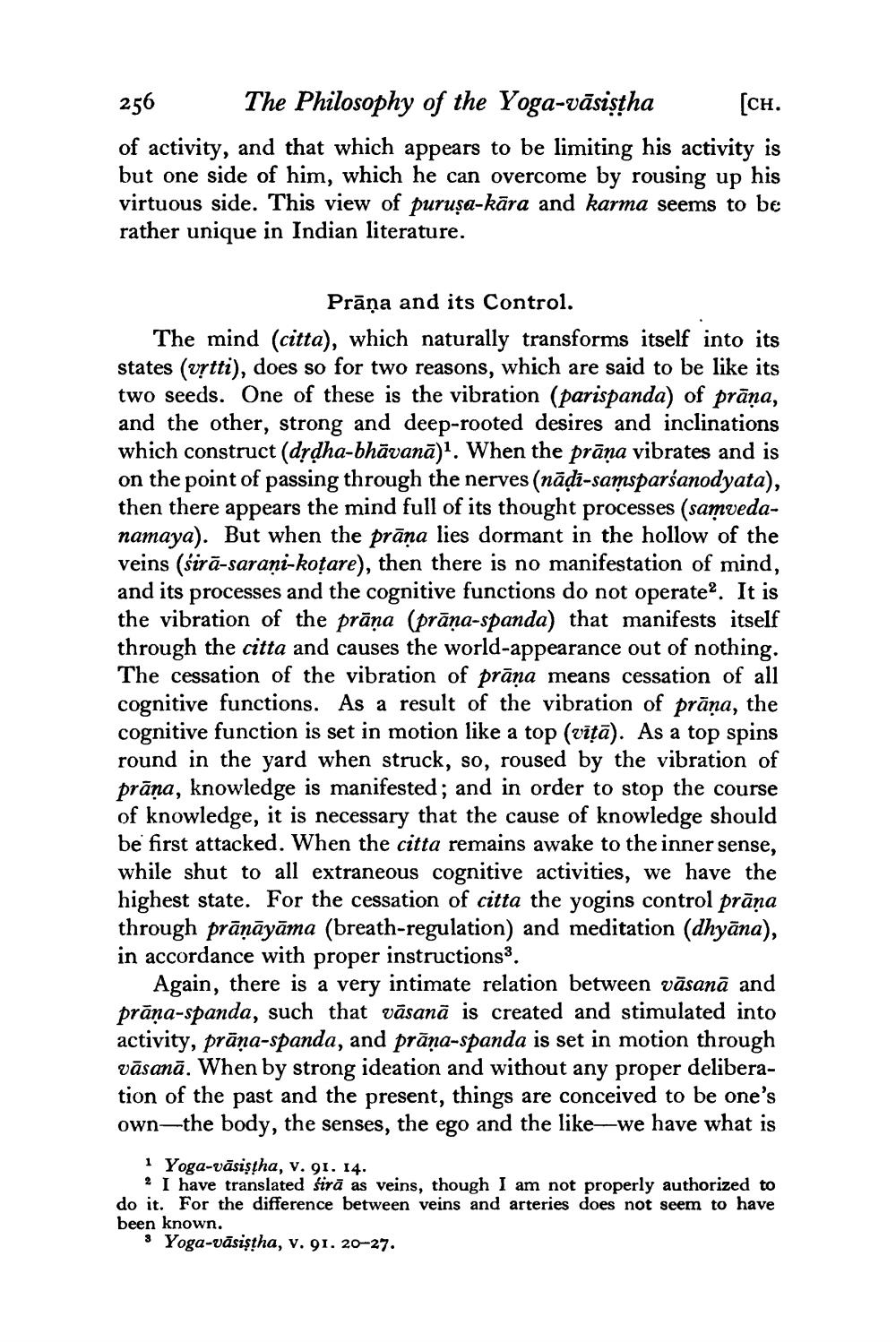________________
256 The Philosophy of the Yoga-vāsistha [CH. of activity, and that which appears to be limiting his activity is but one side of him, which he can overcome by rousing up his virtuous side. This view of puruşa-kāra and karma seems to be rather unique in Indian literature.
Prāņa and its Control. The mind (citta), which naturally transforms itself into its states (vrtti), does so for two reasons, which are said to be like its two seeds. One of these is the vibration (parispanda) of prāna, and the other, strong and deep-rooted desires and inclinations which construct (drdha-bhāvanā)". When the prāna vibrates and is on the point of passing through the nerves (nāļi-samsparśanodyata), then there appears the mind full of its thought processes (samvedanamaya). But when the prāna lies dormant in the hollow of the veins (sirā-sarani-koțare), then there is no manifestation of mind, and its processes and the cognitive functions do not operate. It is the vibration of the prāņa (prāņa-spanda) that manifests itself through the citta and causes the world-appearance out of nothing. The cessation of the vibration of prāņa means cessation of all cognitive functions. As a result of the vibration of prāņa, the cognitive function is set in motion like a top (vīțā). As a top spins round in the yard when struck, so, roused by the vibration of prāna, knowledge is manifested; and in order to stop the course of knowledge, it is necessary that the cause of knowledge should be first attacked. When the citta remains awake to the inner sense, while shut to all extraneous cognitive activities, we have the highest state. For the cessation of citta the yogins control prāņa through prāņāyāma (breath-regulation) and meditation (dhyāna), in accordance with proper instructions.
Again, there is a very intimate relation between vāsanā and prāņa-spanda, such that vāsanā is created and stimulated into activity, prāņa-spanda, and prāņa-spanda is set in motion through vāsanā. When by strong ideation and without any proper deliberation of the past and the present, things are conceived to be one's own—the body, the senses, the ego and the like we have what is
1 Yoga-vāsiştha, v. 91. 14.
2 I have translated sirā as veins, though I am not properly authorized to do it. For the difference between veins and arteries does not seem to have been known.
3 Yoga-vāsiştha, v. 91. 20–27.




